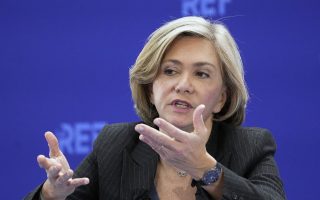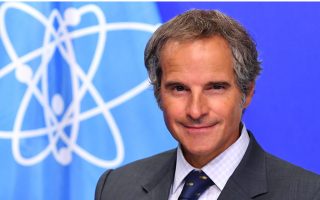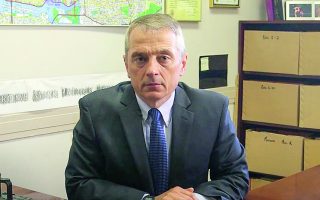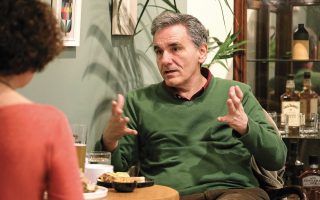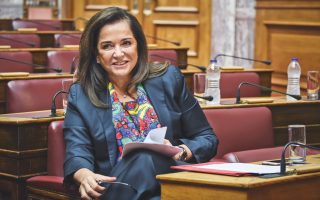‘Russian aggression is a wake-up call’
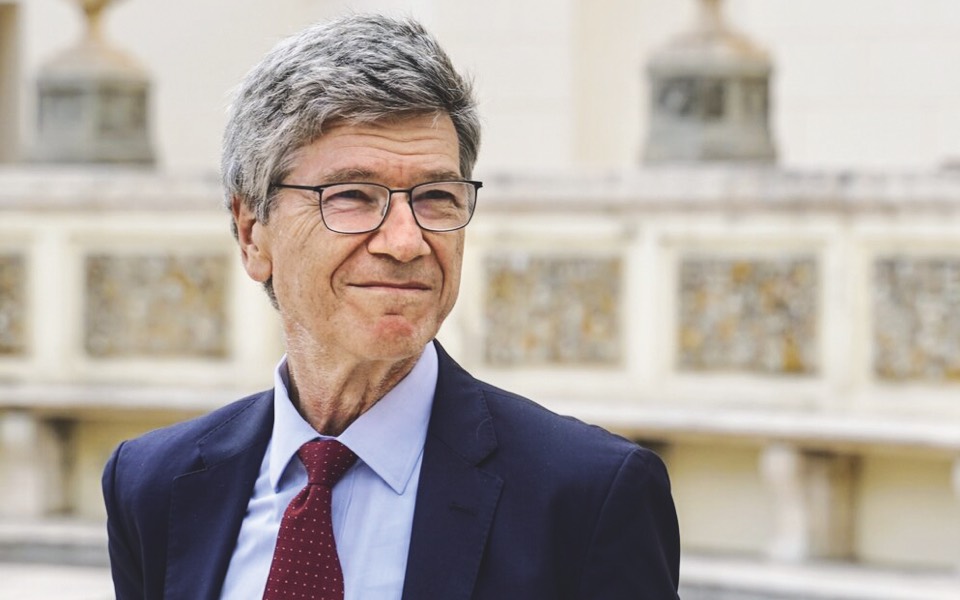
In recent weeks the eminent economist and professor at Columbia University’s School of International and Public Affairs Jeffrey Sachs has been quite critical over Washington’s handling of Ukraine. He expressed disagreement with the American view regarding the security architecture in Europe and the world. Few American liberal intellectuals have expressed with such clarity views that recognized Russia’s right to have a say in Europe’s security and that this say should be taken seriously by the West.
“Russia should have a say in Europe’s security to the extent that it involves Russia’s security. It already does so, as a member of the [Organization for Security and Cooperation in Europe],” he told Kathimerini just a day before Russia’s invasion. He believed that the invasion could be averted even at the last moment.
He thought that US acceptance of Moscow’s demand that Ukraine would never be part of NATO would be the right move. He disagreed with the counterargument that such a decision could be used as a pretext for Russia to expand its interventions in Europe. “The question is whether NATO should have a free hand to expand wherever it wants. This is really the question, whether the US should have a free hand to expand its military presence anywhere in Europe. I don’t think so. It’s provocative. Moreover, NATO promised the Soviet Union in 1990 that it wouldn’t expand eastward, but lied.”
On the other hand, a few hours before the invasion, Sachs insisted that “Russia should not invade, and Ukraine should not have to fight,” and pointed out that the optimal diplomatic solution would be the following: NATO’s commitment that it will not expand to Ukraine in exchange with the restoration of Ukraine’s sovereignty, Russian withdrawal from eastern Ukraine, demobilization of its forces and implementation of Minsk II. He had a few doubts over whether such a diplomatic initiative would succeed but he believed that it had considerable chances. “The non-enlargement of NATO would be of great interest for Putin.” In other words, Sachs seemed to support the idea of NATO non-enlargement while the West could possibly offer Ukraine a regional defense cooperation framework. Perhaps we will never learn whether this idea could have averted the invasion. In all cases NATO had already rejected such ideas because they would seem an open invitation to Moscow to challenge the Eastern flank of the Alliance more widely.
Sachs also pointed out something that would soon seem prescient: “[As things stand today, last Wednesday] The US is championing Ukraine’s theoretical right to join NATO, but is in fact leaving Ukraine open to the Russian invasion.” Indeed, the invasion started just a few hours later, and Kathimerini contacted Sachs again soon after.
Might the unfolding invasion now end before we see a widespread catastrophe in Ukraine? What should be done?
Of course this is a catastrophe. We don’t know if and at what stage and by what means this could have been headed off, but the Western approach failed, in recent weeks, and in recent decades. It is hard to imagine an outcome for Ukraine that is at all satisfactory. The diplomatic approach was the only viable one. War is not a viable one. Ukraine should not become a new graveyard.
Should the Russian aggression be a wake-up call for Europe and the world? Even if it is a mistake for the West to ignore Russia’s security concern for so long, do we now see a revisionist regime threatening peace in Europe?
Yes, Russian aggression is a wake-up call. We need dramatically to condemn Russia’s actions, escalate global diplomacy under the UN Charter, work vastly harder on building a global approach to global crises (we failed with the pandemic too, and with climate change, and other global crises), and defend against further Russian aggression without spiraling into war, and – God forbid – a nuclear face-off.
How is the unfolding crisis going to affect the world economy?
The crisis, if it escalates, will have a major adverse effect in the coming year or two. And this crisis will come on top of the pandemic. And the climate crisis is rapidly worsening. If there’s an El Nino year on top of all of this (perhaps in 2023 or 2024) the climate shocks will also be severe. We should avoid a war, and avoid a useless slide into escalating sanctions.
Would the crisis lead to Europe cutting off its dependence on Russian gas, something that combined with the global economy’s greening will precipitate Russia’s decline?
In the long run, Russia cannot in any event depend on its gas exports. The world is decarbonizing. Whether the crisis will speed this up is a bit uncertain. Other gas producers, including the US gas producers, are thrilled to step in to fill any void left by Gazprom. In the meantime, Russia will divert its exports of gas to China and elsewhere, at least to some extent. But yes, there will be high costs to all of this in the short term.
US ‘power is waning’
Could we say that Russia’s move in Ukraine is the first sign of a wider global shift toward a more forceful challenge of the US as the sole superpower authority? Could the so-called “pact” between China and Russia be seen as another ominous sign of things to come?
US power is surely waning in relative terms, but this does not necessarily mean a China-Russia pact. The US is actually the first to try to divide the world between friends and foes. The US believes in a US-led world. I do not. I believe in a multipolar world based on the UN Charter, the Universal Declaration of Human Rights, and nuclear disarmament. China and Russia and others should have their place within that multipolar world. Europe’s security should be built within the OSCE, not on NATO enlargement. This all seems idealistic to some people, and indeed naive to many, but let’s discuss it and negotiate thoroughly to see if such arrangements can be made.
